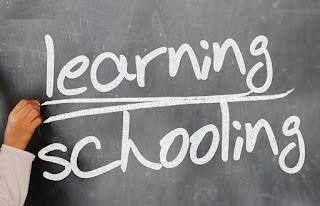Getting to your know students: How to REALLY impact their lives
Sport Kid likes his music teacher above all of his teachers, because his music teacher chats to him and asks him questions about his life. Sport Kid feels like his music teacher cares about him.
Sport Kid likes his music teacher above all of his
teachers, and not because he loves learning a musical instrument, in fact, it
has nothing to do with the subject that this particular teacher teaches. It is because
the music teacher chats to Sport Kid and asks him about his life, he puts in
effort to kid to know sport kid and sport kid feels like his teacher cares
about him. Sport Kid says that he knows all about his teacher too and they talk
about what they do on their weekends and the sport that they play.
Sport Kid,
who has had a lot of behaviour issues in the classroom, got an award last week
in Music for the effort that he has been putting into his lessons. Sport Kid isn’t
named Music Kid, because he doesn’t have much interest in music, but he is
prepared to show his music teacher that he is a well behaved kid who tries his
best, because he feels like his teacher cares about him.
When students are asked about their
motivation to succeed in a subject, their motivation can often be traced back
to whether they felt that their teacher cared about them personally. If a
student felt that their teacher showed positive behaviours of good will and
good intentions towards the student, the students were motivated to succeed in
that teachers subject.
The hashtag #kidsdeserve is becoming increasingly popular
on Twitter and it would seem that while we can all agree that kids do in fact deserve
“it”, reflecting on Sport Kid and his classroom behaviour, we could also say
that getting to know your students is worth it. It’s worth it for them because
it makes them feel like they are a valuable member of the classroom community,
and it’s worth it for the teacher because it can impact their classroom
behaviour in a positive way.
Taking the time to talk, listen and care about your
students can earn you’re their respect and with that respect can come a huge
drop in behaviour problems.
Qualitative and quantitative research has shown teacher/student
relationships and feedback, both concepts that have a foundation in a caring
and compassionate pedagogy, have a positive and significant impact on student
achievement.
Getting to know your students also gives you the opportunity
to personalise your student’s learning styles and allows you to teach the
students in an environment where they feel like their culture, their life experiences,
learning styles and individual abilities are respected. Creating an environment
based on respect makes children feel safe. When a child feels safe, they learn
more effectively.
How can you implement pedagogy of care and compassion
into your teaching?
It can begin with the simple task of learning each student’s
name. Greet each student as they come into the classroom by their name, you may
even wish to integrate the time it takes to great each student individually
into your lesson plan, and use their name when you give them back their work.
At the end of the day, you are working with kids, who won’t always behave
perfectly and who will all
respond differently to your attentions, but don’t get discouraged, keep trying and
you never know, you may have a break through, and one day, your students will
be telling their children about that one teacher who took the time to knew them
and really change their attitude to learning, their time at school and who had
an impact in their life.
The Extra Credit Academy.
Are you looking for teacher professional development courses? Extra Credit has a range of online courses for developing your knowledge and skills and increasing your PD hours.
Visit us at Extra Credit
Callender,L. (2011) Compassion and Care
in Pedagogy. Retrieved from https://landersonc.weebly.com/uploads/8/2/5/9/8259406/the_role_of_caring_and_compassion_in_pedagogy.pdf
Education World, (2012).The secret weapon: getting to know your
students. Retrieved from http://www.educationworld.com/a_curr/columnists/mcdonald/mcdonald013.shtml
Glenz,T. (2014.) The
Importance of Learning Students’ Names. Retrieved from http://teachingonpurpose.org/wp-content/uploads/2015/03/Glenz-T.-2014.-The-importance-of-learning-students-names.pdf
Larsen, A. (2015). Who
cares? Developing a pedagogy of caring in higher education. Retrieved from https://digitalcommons.usu.edu/cgi/viewcontent.cgi?article=5325&context=etd
Western Australia Department of Education and Training.
(2009). Effective Teaching. Retrieved
from https://www.education.wa.edu.au/documents/2548175/2664299/Effective+Teaching.pdf/60edae76-9a7d-4e84-9e49-180ceb3f0a2b





Comments
Post a Comment